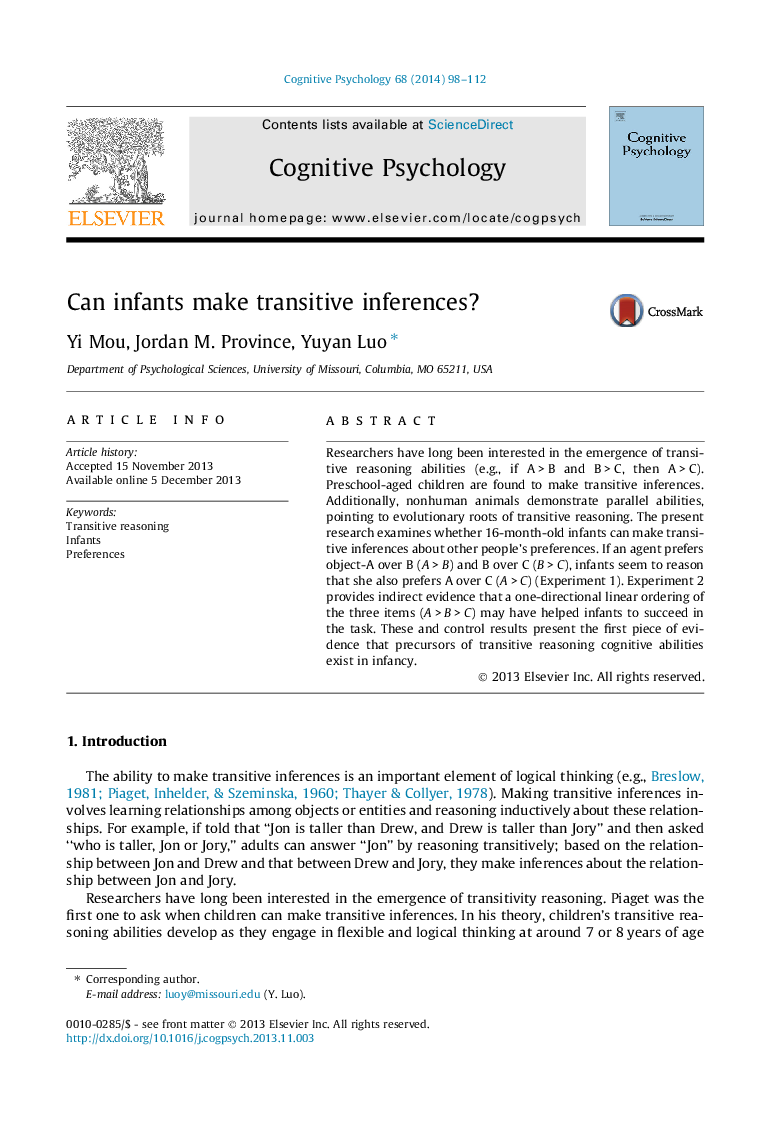| Article ID | Journal | Published Year | Pages | File Type |
|---|---|---|---|---|
| 916878 | Cognitive Psychology | 2014 | 15 Pages |
•Making transitive inferences is an important element of logical thinking.•Sixteen-month-old infants seem to make transitive inferences about others’ preferences.•This suggests early emergence of the transitivity reasoning abilities.
Researchers have long been interested in the emergence of transitive reasoning abilities (e.g., if A > B and B > C, then A > C). Preschool-aged children are found to make transitive inferences. Additionally, nonhuman animals demonstrate parallel abilities, pointing to evolutionary roots of transitive reasoning. The present research examines whether 16-month-old infants can make transitive inferences about other people’s preferences. If an agent prefers object-A over B (A > B) and B over C (B > C), infants seem to reason that she also prefers A over C (A > C) (Experiment 1). Experiment 2 provides indirect evidence that a one-directional linear ordering of the three items (A > B > C) may have helped infants to succeed in the task. These and control results present the first piece of evidence that precursors of transitive reasoning cognitive abilities exist in infancy.
